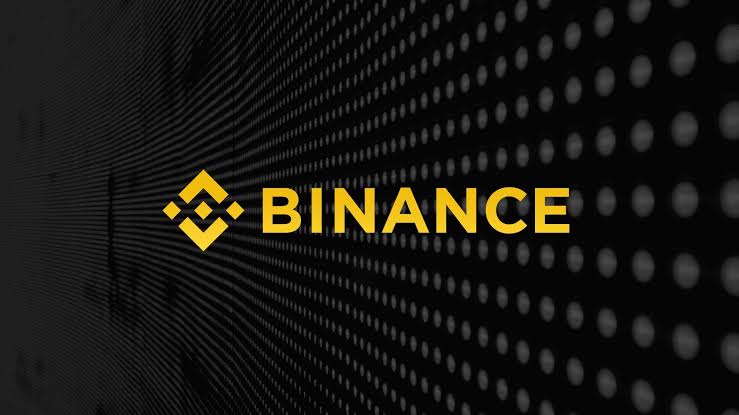Exciting news for the Binance Smart Chain (BSC) community! Imagine a scenario where every transaction you make on BSC contributes to making its native token, Binance Coin (BNB), potentially more valuable. Well, that future might be closer than you think. Developers behind the popular decentralized blockchain are proposing a significant change: implementing a gas-burning mechanism. This initiative, dubbed BEP-95, aims to introduce a systematic way to reduce the circulating supply of BNB, potentially mirroring the positive impact seen with Ethereum’s EIP-1559.
What is BEP-95 and How Will It Work?
Think of BEP-95 as a smart incinerator for a portion of the transaction fees on the Binance Smart Chain. Currently, when you interact with decentralized applications (dApps) or transfer tokens on BSC, you pay gas fees. These fees primarily go to the validators who maintain the network’s security. However, the proposed BEP-95 introduces a twist. According to the developers’ proposal, a fixed percentage of these gas fees – initially set at 10% – will be permanently removed from circulation, effectively ‘burning’ them.
Let’s break it down:
- The Core Idea: To burn a portion of the gas fees paid by users on the Binance Smart Chain.
- The Mechanism: BEP-95 proposes burning 10% of the gas fees.
- The Beneficiaries (Potentially): Holders of BNB, as reduced supply could lead to increased value.
- The Flexibility: The 10% figure isn’t set in stone. The community will have the power to adjust this percentage through voting.
The developers clearly state their objective: “speed up the BNB burning process and… improve its intrinsic value by burning a portion of gas fees.” This is a significant step towards potentially enhancing the long-term value proposition of BNB.
Why the Shift Towards a Gas-Burning Mechanism?
The driving force behind BEP-95 is the pursuit of sustainability for the BNB ecosystem. Currently, Binance, the centralized exchange behind BSC, conducts regular BNB burns. These burns are designed to reduce the total supply of BNB to 100 million tokens. Once this target is reached, Binance’s manual burns will cease.
So, where does BEP-95 fit in? It’s about ensuring the continued deflationary pressure on BNB even after Binance’s scheduled burns conclude. By automating a portion of the burning process through transaction fees, the developers aim to create a more consistent and predictable reduction in BNB’s supply. This strategic move aims to keep BNB competitive in the ever-evolving cryptocurrency landscape.
Drawing Parallels: The Ethereum Effect
The inspiration for BEP-95 is evident: Ethereum’s successful implementation of EIP-1559 earlier this year. EIP-1559 introduced a base fee burning mechanism for Ethereum transactions, a move widely credited with contributing to the positive price action of ETH. The Binance Smart Chain developers are clearly taking note of this success and aiming to replicate some of those benefits for BNB.
Think of it this way:
| Feature | Binance Smart Chain (BEP-95 Proposed) | Ethereum (EIP-1559 Implemented) |
|---|---|---|
| Mechanism | Burns a percentage of transaction gas fees (initially 10%). | Burns a base fee for each transaction. |
| Goal | Increase BNB’s intrinsic value and sustainability. | Improve transaction fee predictability and introduce deflationary pressure. |
| Impact (Potential) | Reduced BNB supply, potentially driving up price. | Reduced ETH supply, contributing to price appreciation. |
What Does This Mean for You?
The implementation of BEP-95 could have several implications for users of the Binance Smart Chain and holders of BNB:
- Potential Price Appreciation: A reduced supply of BNB, all else being equal, could lead to an increase in its price.
- Enhanced Scarcity: The burning mechanism will make BNB scarcer over time.
- Community Governance: The ability for the community to vote on the burn percentage adds a layer of decentralization and control.
Are There Any Challenges to Consider?
While the proposal is promising, it’s important to acknowledge potential challenges:
- Impact on Validators: A portion of the fees they would normally receive will be burned. It’s crucial to ensure validators remain incentivized to secure the network.
- Community Consensus: While the initial proposal suggests 10%, achieving consensus on the final percentage through community voting will be important.
- Market Dynamics: The success of BEP-95 in driving up the price of BNB will also depend on broader market conditions and investor sentiment.
Looking Ahead
It’s crucial to remember that BEP-95 is still in its early stages and is subject to change. The proposal highlights the Binance Smart Chain developers’ commitment to innovation and their willingness to adapt and learn from other successful blockchain initiatives. By introducing a gas-burning mechanism, they aim to enhance the long-term sustainability and value proposition of BNB, potentially mirroring the positive effects seen with Ethereum’s EIP-1559.
This move signifies a strategic step towards managing the supply of BNB in a decentralized manner, ensuring its relevance and competitiveness in the ever-evolving world of cryptocurrencies. Keep an eye on further developments and community discussions surrounding BEP-95 – it could be a game-changer for the Binance Smart Chain ecosystem.
Disclaimer: The information provided is not trading advice, Bitcoinworld.co.in holds no liability for any investments made based on the information provided on this page. We strongly recommend independent research and/or consultation with a qualified professional before making any investment decisions.




